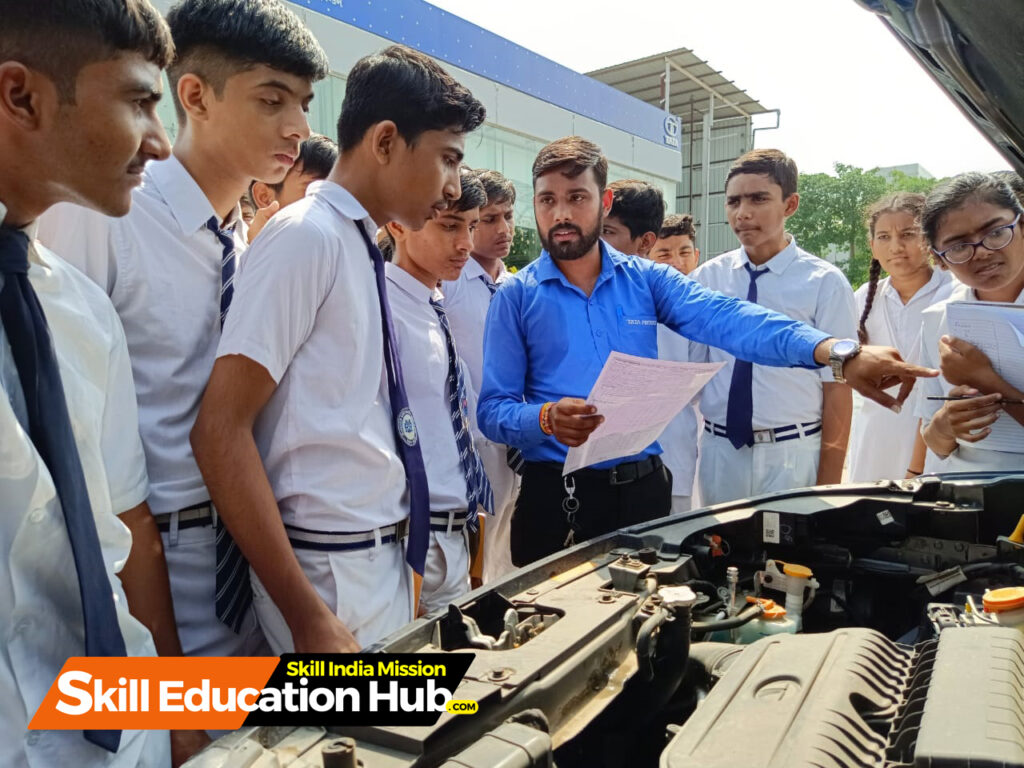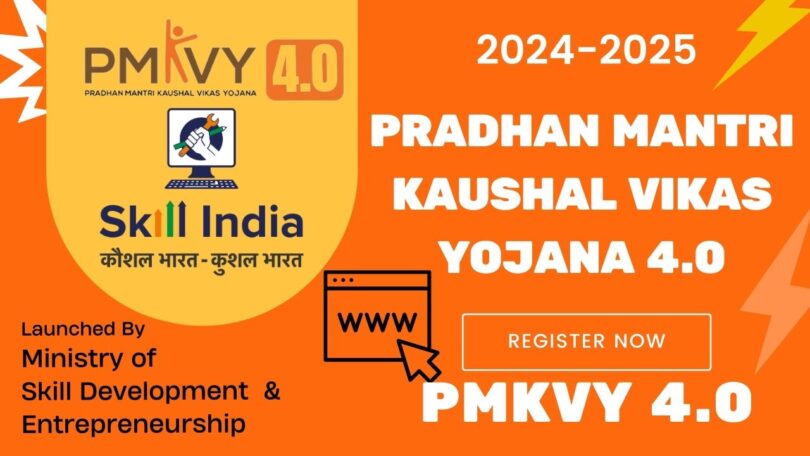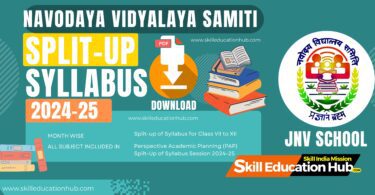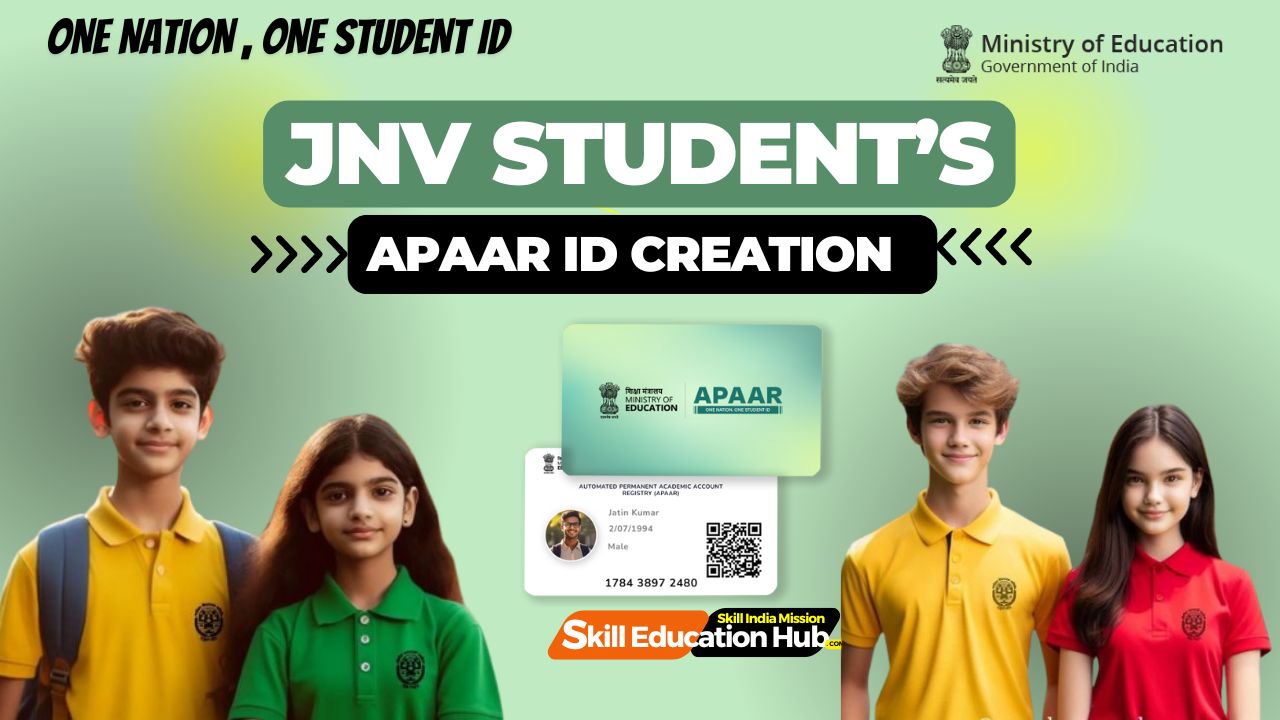Program By National Skill Development Corporation

Pradhan Mantri Kaushal Vikas Yojana 4.0 (2024-25): Empowering Indian Youth
In a significant push towards empowering the youth with relevant vocational skills, the Indian government has announced the Pradhan Mantri Kaushal Vikas Yojana 4.0 (2024-25). This ambitious initiative is aimed at bridging the skill gap in various sectors of the economy by providing industry-relevant training and enhancing the employability of the young population.
As the fourth iteration of the scheme, Kaushal Vikas Yojana 4.0 comes with new enhancements and expanded coverage, ensuring more comprehensive access to skilling opportunities for all sections of society. Here’s everything you need to know about this flagship program:
Objectives of the Scheme
- Skill Development : To provide skill training to the youth in various industry sectors.
- Certification : To offer standardized certification to the trained workforce which is recognized across the nation.
- Employment Support : To facilitate placements and entrepreneurship opportunities for participants after training.
- Inclusiveness : To ensure equal opportunity for rural and urban youths, women, and disadvantaged social groups.
Key Features :
Features of Pradhan Mantri Kaushal Vikas Yojana 4.0
- Partnership with private institutions and corporate houses.
- Emphasis on digital skills and emerging technologies.
- Skill upgradation for those with prior learning or experience.
- Entrepreneurship training incorporated into selected courses.
- PMKVY 4.0 offers two types of training:
• Short Term Training (STT) : 200 – 600 hours
• Recognition of Prior Learning (RPL)/Upskilling : 30-132 hours
• Free skill training to be provided to the candidates in 715 skilling courses to enhance their employability.
• 111 Future Skills Job Roles would be preferred for target allocation.
Tailored programs for different industry verticals.
- PMKVY 4.0 offers two types of training:
Pre-Requisites
- Infrastructure:
- I. Availability of adequate classroom for theory classes & laboratory.
- II. Aadhar Enabled Biometric Attendance System (AEBAS) to be installed and
- attendance of Candidates, Trainers, Assessors shall be captured through it.
- III. Minimum 70% attendance of candidates will be mandatory for assessment.
Implementation Modalities
Skill Training life cycle will be managed through Skill India Digital:
i. Registration of Candidates
ii. Batch formation, Training lifecycle, attendance, assessment
iii. Certification
Training centers will be required to register on the Skill India Digital portal and provide some details about available classroom, labs, trainers, etc.
National Skill Development Corporation (NSDC) shall provide handholding and technical support for onboarding training centers on SID.
Assessment and certification would be done through the third-party agencies namely, Sector Skill Councils (SSCs) or any other awarding body approved by National Council for Vocational Education and Training (NCVET)
Financial Provisions
a. For SP, Average training cost would be Rs. ~10,000 per candidate, which will be paid to the training provider. Per candidate cost = (No. of Job role Hours) * (Discounted Common Cost Norms Category)
| S. No. | Category | Updated Base Cost under PMKVY 4.0 (discounted by 33.60%) |
| 1 | I | 32.54 |
| 2 | II | 27.89 |
| 3 | III | 23.31 |
b. Payment will be made through Skill India Digital in 3 tranches: 1st tranche (30%) at enrolment, 2nd
Tranche (30%) at completion of 50% of training, and 3rd tranche at certification.
c. 10% additional payout for Special Area.
d. B&L at Rs 190 per day per candidate for special group, PwD and Women, in Special Area.
e. For PwD candidate, Rs. 5,000/- towards assistive aid, devices/appliances.
How to Apply :
Interested candidates can apply through the official portal of the Pradhan Mantri Kaushal Vikas Yojana. The website outlines the process, lists the training centers, and provides a step-by-step guide on how to enroll for the courses.
Conclusion :
The Pradhan Mantri Kaushal Vikas Yojana 4.0 is not just an educational venture but a transformative move towards making India the skill capital of the world. By equipping the youth with necessary skills and knowledge, the government envisions a future where every individual can contribute effectively to the nation’s growth and their personal advancement.







